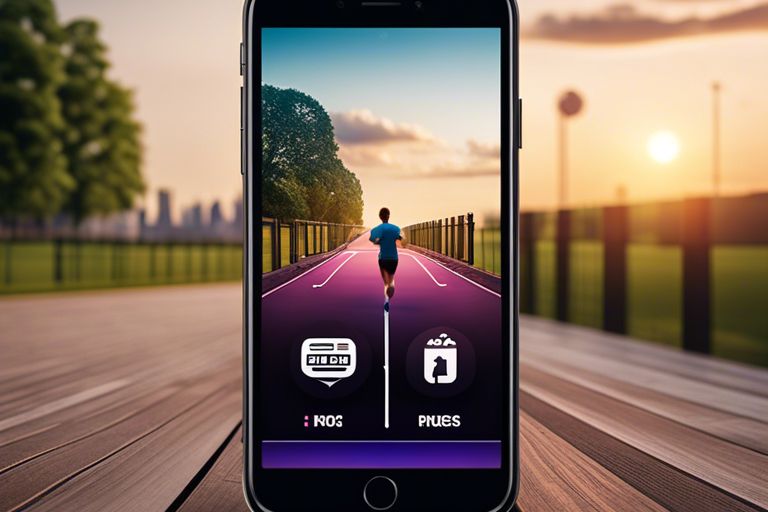Regarding jogging, staying hydrated is imperative for optimal performance and overall health. The right choice of drink can make a significant difference in your running experience, helping you maintain energy levels and prevent dehydration. In this blog post, we will explore the importance of hydration during a run and discuss the best drinks to consume to keep you going strong. Whether you’re a seasoned runner or just starting out, understanding what to drink during a run is key to reaching your fitness goals and enjoying your workout to the fullest.
Key Takeaways:
- Hydration is key: Staying hydrated during a run is crucial for performance and overall health.
- Electrolytes are important: Replenishing electrolytes lost through sweating is necessary for maintaining balance in the body.
- Avoid sugary drinks: High sugar content in drinks can lead to digestive issues and energy crashes during a run.
- Consider sports drinks: Sports drinks can provide a balance of carbohydrates and electrolytes for longer runs or intense workouts.
- Listen to your body: Pay attention to how different drinks affect your performance and adjust accordingly to find what works best for you.
Understanding Your Hydration Needs
Signs of Dehydration During a Run
It is crucial to be aware of the signs of dehydration when you are out for a run. Symptoms may include feeling thirsty, dry mouth, dark yellow urine, dizziness, fatigue, or cramps. Paying attention to these signs and addressing them promptly can prevent serious consequences and help you maintain peak performance during your run.
How Much Should You Drink?
In the context of staying hydrated during a run, the general recommendation is to drink around 150-250ml of water every 15-20 minutes. However, individual hydration needs can vary based on factors like the intensity of your run, weather conditions, and your own sweat rate. One way to determine your specific requirements is to weigh yourself before and after a run; the weight lost is mostly water, and you should aim to replace it by drinking 500ml of water per 0.45kg lost.
Best Hydration Practices for Joggers
Pre-Run Hydration
Before heading out for a jog, it’s imperative to ensure your body is well-hydrated. Aim to drink around 500ml of water 2-3 hours before your run. Avoid excessive amounts of caffeine or alcohol, as these can dehydrate the body. Listen to your body and drink according to your individual needs.
Intra-Run Hydration Strategies
During your run, it’s crucial to stay hydrated to maintain performance and avoid dehydration. Consider carrying a handheld water bottle, wearing a hydration vest, or planning your route past water fountains. Aim to sip water every 15-20 minutes, especially during longer runs or hot weather conditions.
Staying hydrated during your run can improve performance and reduce the risk of heat-related illnesses. Electrolyte drinks can be beneficial for longer runs, providing imperative salts lost through sweat. Experiment with different hydration strategies during training to find what works best for you.
Post-Run Rehydration
After completing your run, don’t forget about the importance of rehydration. Aim to drink at least 500ml of water or a recovery drink containing electrolytes within 30 minutes of finishing your run. This will help replenish lost fluids and aid in the recovery process.
Rehydrating after a run is imperative to replace fluids lost through sweat and promote muscle recovery. Including a source of protein in your post-run hydration can further support muscle repair and growth. Listen to your body and adjust your rehydration strategy based on the intensity and duration of your run.
Nutritional Drinks and Their Benefits for Joggers
Water vs. Sports Drinks: Pros and Cons
| Water | Sports Drinks |
| Essential for staying hydrated | Provide electrolytes for energy |
| No added sugars or calories | Can replenish electrolytes lost through sweat |
| Readily available and cost-effective | May contain artificial ingredients |
Homemade Hydration Solutions
Homemade Hydration Solutions
For those looking for a more natural alternative to commercial sports drinks, homemade hydration solutions can be a great option. These can be made with simple ingredients like water, lemon juice, honey, and a pinch of salt to replenish electrolytes lost during a run.
Electrolyte Balance and Energy Drinks
Electrolyte balance is crucial for maintaining proper muscle function and preventing cramps during a long run. Energy drinks can help replenish electrolytes and provide a quick energy boost, but it is important to choose ones with the right balance of electrolytes and avoid those with excessive sugar or caffeine content.
Special Considerations for Long-Distance Running
Hydration Gear for Long-Distance Runs
In the matter of long-distance running, having the right hydration gear is crucial. Invest in a comfortable hydration belt or vest that allows you to carry an adequate amount of water to stay hydrated throughout your run. Look for options that also have pockets for storing energy gels or snacks to fuel your body during the run.
Adjusting Fluid Intake for Weather and Altitude
Weather and altitude can significantly impact your fluid requirements during a long-distance run. In hotter weather, you will sweat more and need to increase your fluid intake to prevent dehydration. Similarly, when running at higher altitudes, the lower oxygen levels can make you breathe harder and lose more fluids through respiration. Be mindful of these factors and adjust your fluid intake accordingly to stay hydrated and avoid potential health risks.
Jogging and Nutrition – What to Drink During a Run
In the final consideration, staying hydrated while jogging is crucial for optimal performance and recovery. Water is the best choice for short runs, while for longer runs or more intense workouts, sports drinks with electrolytes can help replenish lost fluids and minerals. Avoid sugary drinks or energy drinks that can lead to dehydration or stomach discomfort. It’s crucial to listen to your body and choose the right type of drink based on the intensity and duration of your run. By paying attention to your hydration needs, you can ensure a more enjoyable and successful running experience.
FAQ
Q: What are the benefits of staying hydrated during a run?
A: Staying hydrated during a run helps regulate your body temperature, maintain performance levels, and avoid dehydration which can lead to fatigue and muscle cramps.
Q: What is the recommended fluid intake for a runner during a long-distance run?
A: The recommended fluid intake for a runner during a long-distance run is around 150-350ml every 15-20 minutes, depending on factors such as temperature and individual sweat rates.
Q: Is it better to drink water or sports drinks during a run?
A: In most cases, water is sufficient for hydration during a run. However, sports drinks containing electrolytes and carbohydrates can be beneficial for runs longer than 60-90 minutes to replenish lost nutrients and energy.
Q: Can drinking too much water during a run be harmful?
A: Yes, drinking too much water during a run can lead to a condition called hyponatremia, where the sodium levels in your blood become dangerously low. It is important to drink according to your thirst cues and not force excessive amounts of water.
Q: Are there any alternative drinks runners can consider during a run?
A: Yes, runners can consider drinks like coconut water, diluted fruit juice, or homemade electrolyte drinks as alternatives to water or sports drinks to stay hydrated and replenish lost nutrients during a run.






